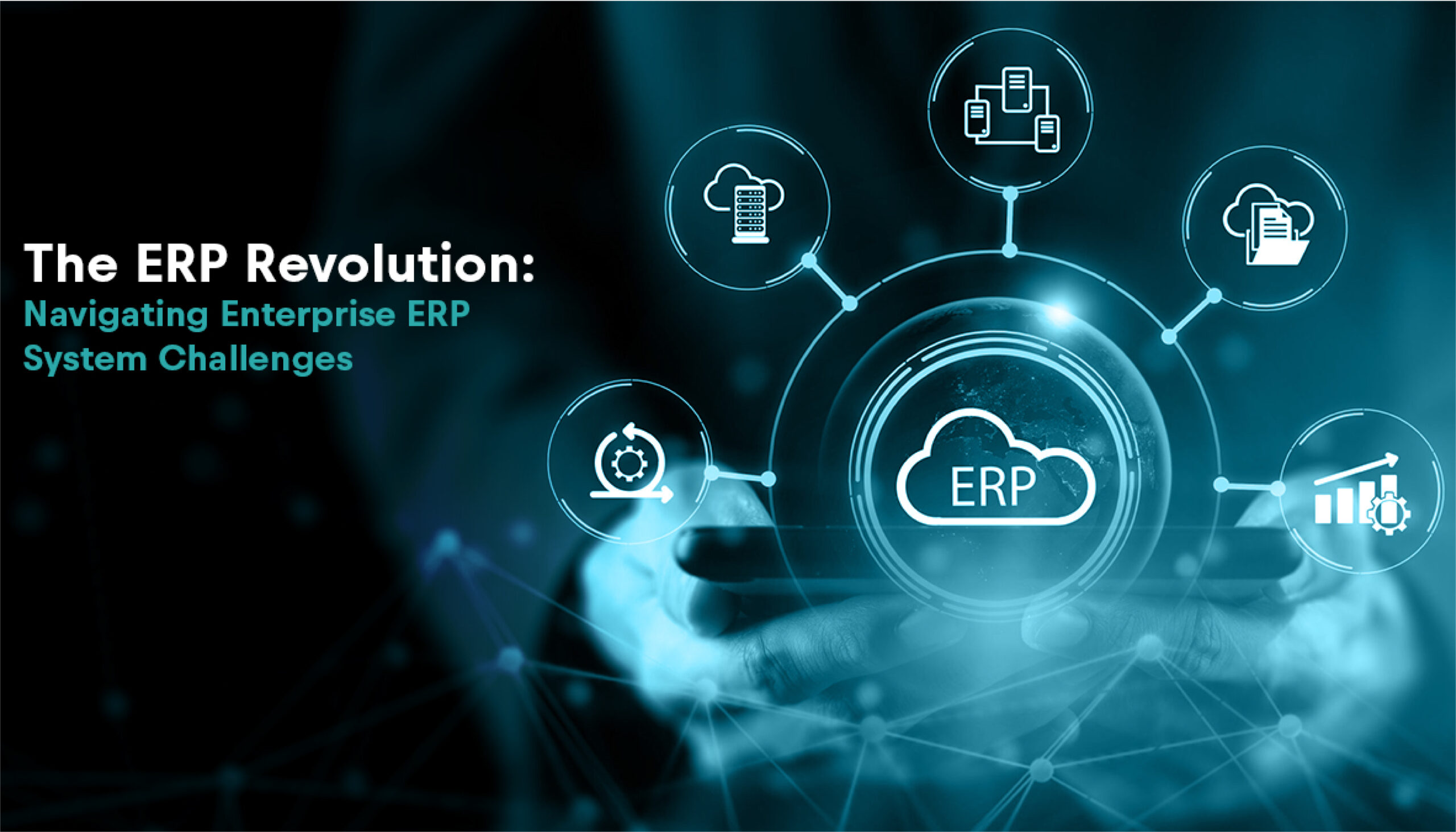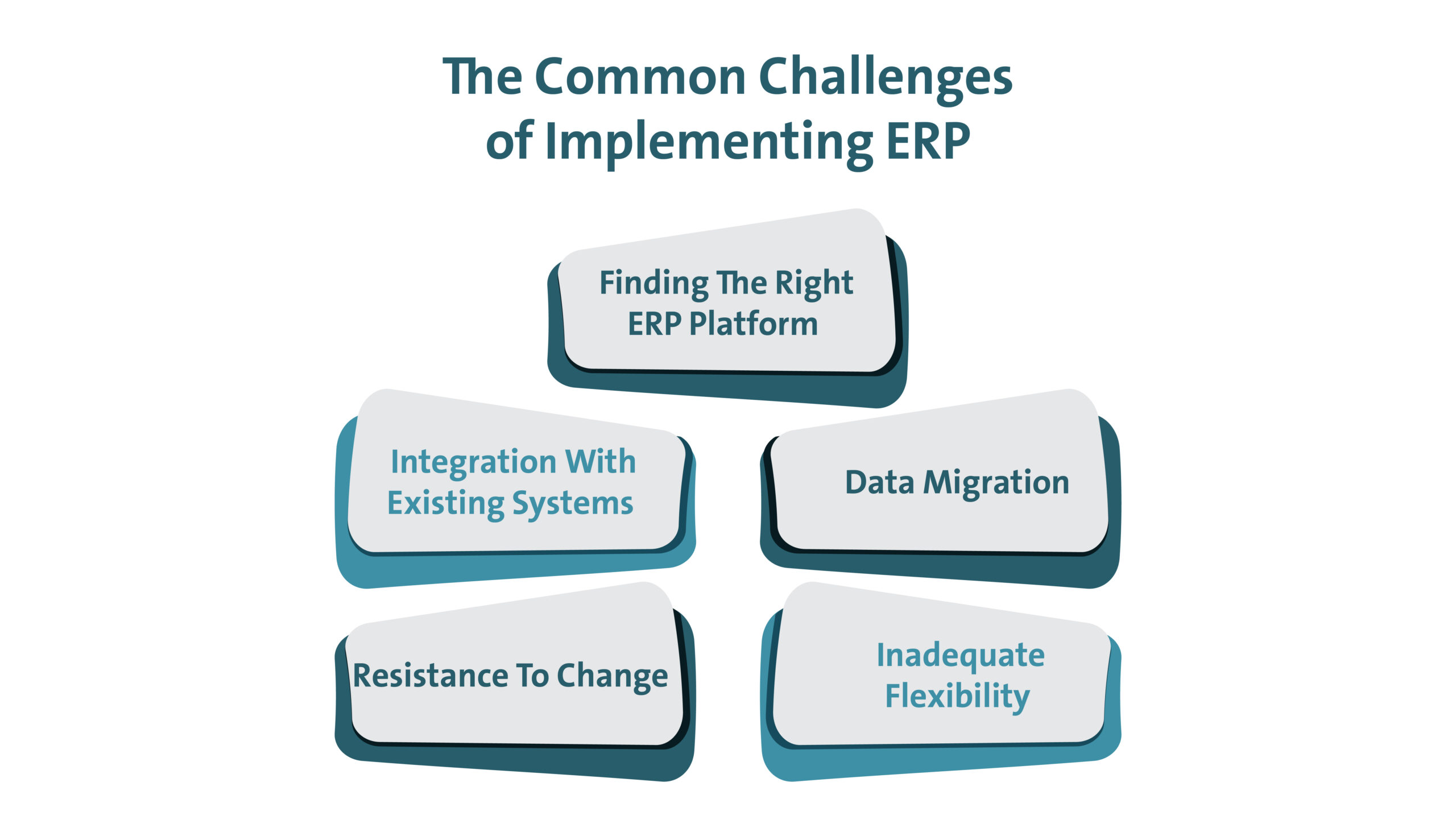
The ERP Revolution: Navigating Enterprise ERP System Challenges

FoxERP
Enterprise Resource Planning solutions can be a lifesaver for businesses. It enables you to automate all your day-to-day business processes in a centralized and streamlined platform. Today, most business organizations implement ERP solutions like FOX ERP to improve business operations, boost data security and data quality, automate workflows, and enhance customer service.
The ERP implementation is a complex and time-consuming process. Businesses implementing the system for the first time may face certain challenges and difficulties. However, the right ERP platform and proper implementation can benefit business potential in myriad ways.
The Reason Why ERP Implementation is a Challenging Task
ERP implementation is a hard, nut-to-crack process as it is complex and affects the entire organization. It brings a paradigm shift in organizational processes by paving the way for automated workflows instead of manual processes. It becomes a necessity for everyone in the organization to address the ERP implementation journey and get users to work out the new solution. The process requires IT professionals or senior management intervention to overcome the difficulties; thus, in this scenario, the organization requires a dedicated project team to represent users on the ERP platform. Hence, it enables to meet the needs of business processes across all the departments.
The Common Challenges of Implementing ERP

- Finding The Right ERP Platform
Selecting the right ERP vendor is one of the significant steps in ERP implementation. When choosing an ERP vendor, you should consider your business requirements, scalability, associated risks, budget, and timescale in addition to your business requirements. Before moving forward, look for validated testimonials of the vendor you have selected. Choose an advanced ERP platform like FOX ERP, as the ERP platform should cater to your business model and industry.
- Integration With Existing Systems
Most of the businesses may already have a variety of systems and applications in place. However, implementing an ERP can be challenging and requires significant efforts to ensure it works alongside existing systems. To ensure that your business can use the system effectively, working closely with an ERP consultant is highly beneficial. It is essential to closely analyze the existing system, identify potential conflicts or overlaps, and develop a comprehensive integration plan that considers your business’s specific requirements and challenges. While integrating FOX ERP into your business, the support team will leave no stone unturned.
- Resistance To Change
ERP implementation often involves significant changes to business operations, which can be challenging for employees who may resist change. Managing the change process carefully and providing proper training and support to help employees adapt to the new system is crucial to ensure a successful implementation journey.
To achieve a seamless ERP integration, you should develop a comprehensive change management plan, including all the support and training for your employees. Provide guidance on the new system and offer ongoing support and assistance to help employees understand how to use the system effectively. Additionally, involving employees in the implementation process can help build support and buy-in for the new system.
- Inadequate Flexibility
If your selected ERP system lacks flexibility, you may have to modify your business processes to fit the ERP to function properly. This may appear a little backwards, and the resources and time required to restructure your business operations and retrain your team may not seem worthwhile. However, selecting an appropriate ERP platform like FOX ERP enables organizations to meet your business-specific needs and ensures a seamless integration process, thereby eliminating risks such as flexibility issues and other ERP implementation challenges.
- Data Migration
Migrating organizational data from existing systems to a new ERP platform can be challenging and time-consuming. It is vital to ensure the data migration process is accurate and complete to avoid business disruptions in the future. Developing a detailed data migration plan that includes a comprehensive analysis of the migrated data is important. It is also essential to develop custom migration tools and seek help from your ERP partner with the help of data migration software specialist to automate the process and ensure the accuracy and completeness of the migrated data in your new ERP.
Thus, we have looked at the significant ERP implementation challenges. Now, let’s quickly look at the tips for overcoming these challenges.
How To Overcome the Challenges of ERP Implementation
Executing the ERP system correctly provides an opportunity to enable successful business transformation, increase revenue, enhance customer and employee experience, and enable organizations to adapt to change effectively, thus positively impacting brand equity.
- Define Your Goals
Defining organizational goals and objectives is the first step when choosing an ERP platform. You need to have a clear vision and a proper understanding of the current position. Make a clear roadmap and set your business objectives confidently.
- Choose The Right ERP Platform
Once you have defined your ERP goals, it’s time to assess potential ERP vendors. The chosen ERP platform should be tailored to fit your specific business model and industry. Look for a vendor that comprehends the complexities of your business or sector.
Moreover, consider post-implementation running costs. As businesses evolve, you may need to scale up your system. Thus, evaluate the cost of adding new functionalities to the ERP system in terms of IT skills, product costs, etc. It is always best to choose a flexible and scalable ERP platform like FOX ERP.
- Involve Your People
While implementing ERP, it is important to involve your people, as even the best ERP system will fail without proper user adoption. Form a team that will be responsible for managing the changes. Create a team by Including technology experts and business functionality experts who can effectively explain the new system’s advantages.
- Test And Validate Your System
Testing and validating your ERP system before deploying it is important to identify potential errors and issues. This minimizes risks, data corruption, and other potential problems that could disrupt operations. Proper testing ensures the system is integrated correctly with other relevant systems.
Facilitating A Successful ERP Implementation with FOX ERP
FOX ERP provides a long-term ERP solution tailored to suit your business requirements. Our team of ERP experts will develop, deploy, and support your implementation from start to finish. If you’re ready to begin your ERP implementation journey, we’re here to make it happen.
Recent Posts

FoxERP
Unleashing the Power of ERP Cloud Migration: Benefits, Challenges, and Options
In the contemporary business landscape, Enterprise Resource Planning (ERP) systems play a pivotal role in driving operational efficiency and facilitating strategic decision-making. With the rapid evolution of cloud technology, organizations are increasingly exploring the option of migrating their ERP systems to the cloud to unlock a plethora of benefits and drive digital transformation.

FoxERP
The ERP Revolution: Navigating Enterprise ERP System Challenges
Enterprise Resource Planning solutions can be a lifesaver for businesses. It enables you to automate all your day-to-day business processes in a centralized and streamlined platform. Today, most business organizations implement ERP solutions like FOX ERP to improve business operations, boost data security and data quality, automate workflows, and enhance customer service.

FoxERP
Unlocking Organizational Success by Embracing the Strategic Roadmap to ERP Implementation
Do you know? The global ERP software market is expected to reach a staggering $78.40 bn by 2026, growing at a CAGR of 10.2%. The global ERP software market is estimated to take over 40% of the market share by 2025.



